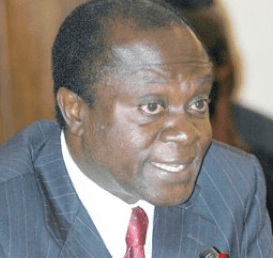Ghana explores effective policy solutions to accelerate economic growth

A seven-member Eminent Panel of renowned economists and academics have been tasked to critique 80 priority public policies and interventions and identify those that will promote value for money and impact lives.
They are also to align those policies and interventions to the National Development Agenda and Sustainable Development Goals (SDGs) to make the greatest impact on the citizenry and the society at large.
Members of the Eminent Panel are Professor George Gyan-Baffour, Minister of Planning, Prof Kwesi Botchwey, Executive Chairman, African Development Policy Ownership Initiative, Mr Ken Ofori-Atta, Minister of Finance, and Prof Eugenia Ampofo of the Kwame Nkrumah University of Science Technology.
The rest are Prof Augustin Fosu of the Institute of Statistical, Social and Economic Research (ISSER) University of Ghana, Prof Ernest Aryeetey, Secretary-General of the African Research Universities Alliance, and Prof Finn E. Kydland, Nobel Laureate in Economics, University of California, Santa Barbara.
They would listen to presentations by 28 researchers drawn from the public and private sectors, academia and civil society organisations, who carried out a study on the social, economic and environmental benefits of the priority policies and the cost-benefit analysis of those policies.
This would help the panel to select the best ones that would aid the maximum allocation of resources.
The areas researched into included healthcare, education, economic development and social protection, which aimed at avoiding arbitrary allocation of resources and promoting evidence-based policy choices.
Vice President Dr Mahamadu Bawumia, in an address read on his behalf at the opening of a three-day “Ghana Priorities Eminent Panel Conference” in Accra on Thursday, said criticising the 80 priority policies would ensure efficient and desirable policy choices.
It was organised by the National Development Planning Commission (NDPC), in collaboration with the Copenhagen Census Centre.
He said it would enable government to make sound sustainable resource allocation decisions that would inure to the benefit of the ordinary Ghanaian.
Vice President Bawumia expressed the belief that the conference would provide an opportunity for dialogue, sharing of ideas and strengthening policy choices to guide government actions.
He underlined the need for continued collaboration between government, CSOs and researchers towards making the relevant policy choices and ensuring value for money.
Dr Kodjo Mensah Abrampah, the Chief Executive Officer of the NDPC, in his welcome address, said the Ghana priority policies conference would provide an alternative perspective on where to invest public funds profitably in order to maximise benefits for the people.
“The conference sets to leverage on data and insights of experts to explore policy options, compare alternatives and identify areas where we can find the greatest return on every money spent,” Dr Abrampah emphasised.
The Ghana priority policies initiative started in February 2019 where 400 policies and interventions aligned to the SDGs and the National Development Agenda were identified for consideration and a reference group of researchers whittled down the number to 80 policies and interventions.
Source: GNA
